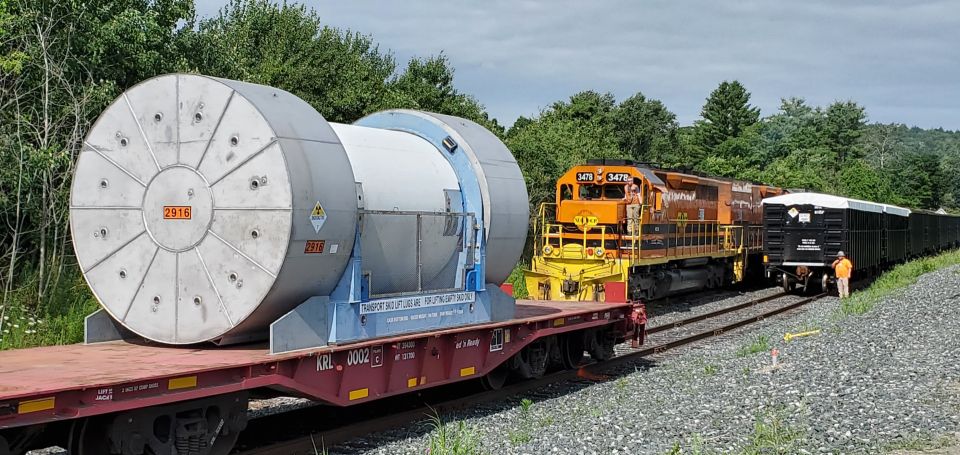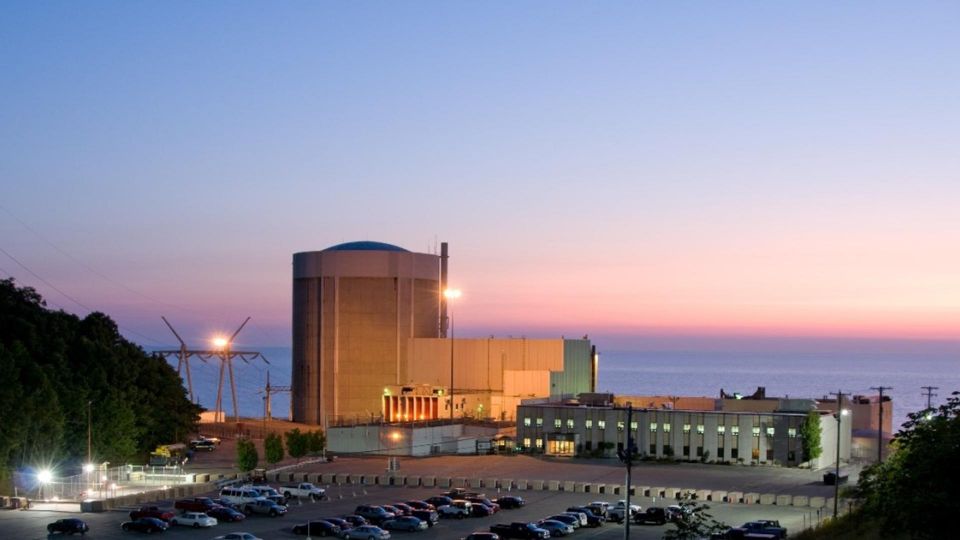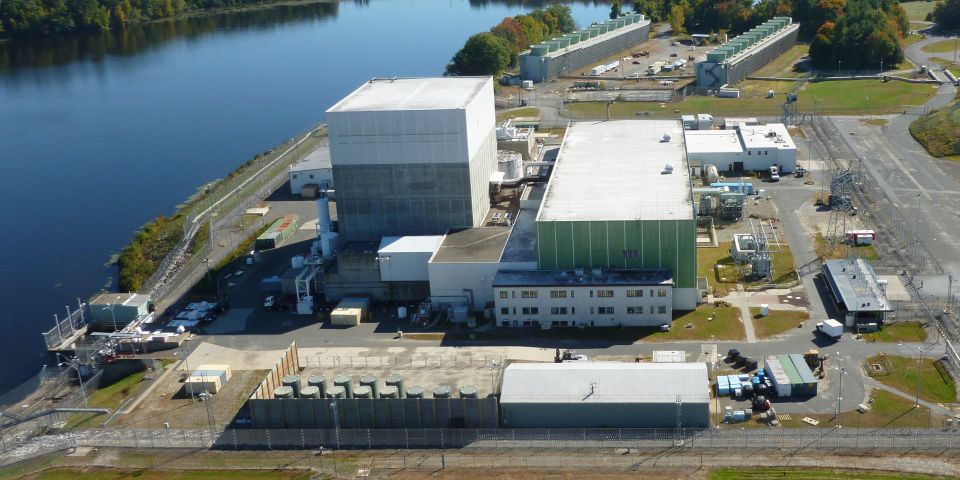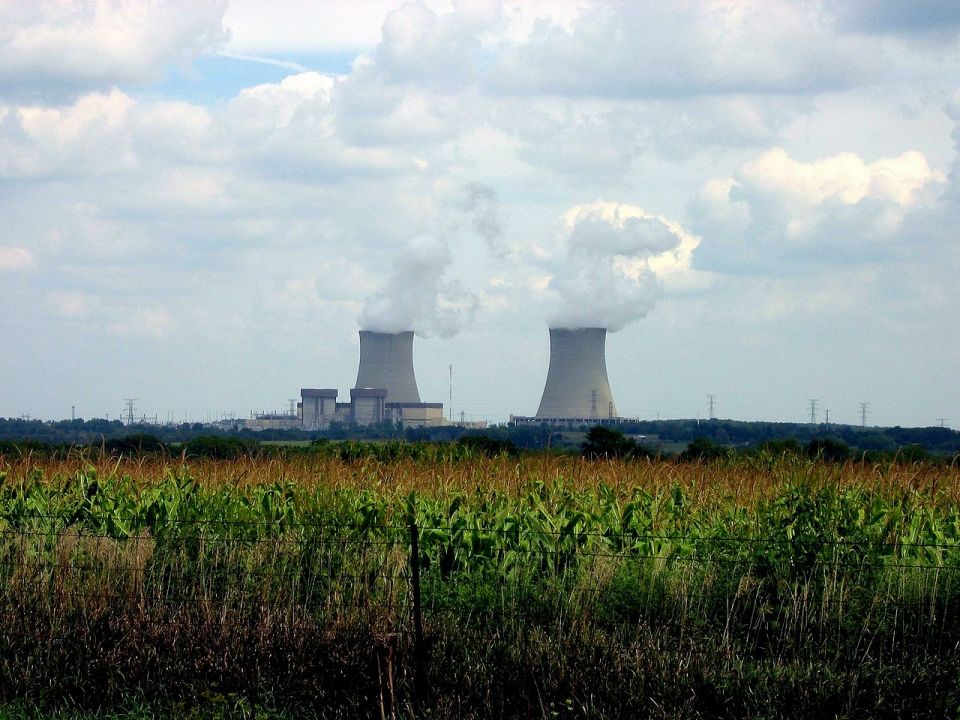Reflections on Vermont Yankee - 1
Although the nuclear power station known as Vermont Yankee had another 18 years left on its license, it was shut down for economic reasons at the end of 2014. Entergy Corporation,the plant's owner, and others have cited the low price of natural gas in the region as deterministic, but the reality is that many other issues were also at play.
Seven authors-who have no official connection to Vermont Yankee, or to Entergy-have provided their opinions on the shutdown of the plant, its implications for the region, and possible implications for other nuclear plants in other areas of the country. This is the first of three posts presenting these opinions.
----------
The Price Is Not the Lesson - Meredith Angwin
Vermont Yankee was a small stand-alone plant (620 MW), exactly the type of plant which has the highest costs per kWH produced. So, when natural gas prices dropped to lowest prices in years, the plant was closed because it wasn't economical to keep it open. That's the agreed-upon story, anyway.
By saying "economics," Entergy (the owner of Vermont Yankee) can claim it never yielded to opponent pressures or pressures from the state government. With "economics" as the reason, opponents can claim that they opposed the plant, but that they didn't shut it down. Opponents can say that the pain of layoffs cannot be laid at their door: "It's just economics."
In other words, the story that the "plant shut for purely economic reasons" is a story that works for all the participants in the battle. However, this story is not a future guide for the nuclear industry. All plants can eventually be "uneconomical" if the opponents are determined enough to make them so.
When the state of Vermont tried to block Vermont Yankee's 20-year license extension, Entergy took them to federal court (and won) costing them millions of dollars in attorneys' fees.
The opposition legislators continued to hit Entergy in the pocketbook, making sure that Vermont Yankee faced many new Vermont taxes. "Generation Taxes" suddenly spiked to $12 million a year. The state of Vermont wanted Entergy to pay $770,000 to the Red Cross to prepare to shelter 6,000 people just in case there was ever an evacuation. Entergy knew that there would be no end to arbitrary taxation by the state of Vermont.
In my opinion, the lesson for the nuclear industry is that we must be engaged and working at the local level. We must oppose anti-nuclear activists with our own local groups and local supporters. Not everything is decided in Washington, D.C. We need local boots-on-the-ground. The plants have economic challenges, but many of their challenges are local, and political. That is the true lesson of Vermont Yankee.
Meredith Angwin blogs at Yes Vermont Yankee. Among nuclear bloggers who have their own blogs, Angwin has been has been closest to the action involving the plant over the past five years.
Vermont Yankee's owner, Entergy, says the unit's closure is because natural gas prices have plummeted and its generated power is no longer economically viable. I don't believe this is the main reason for termination. In my opinion, the economic rationale is a smoke screen for an unspoken, over-riding reason.
Vermont Yankee has been under a socio-political attack for decades. I think that Louisiana-based Entergy no longer had the heart to continue countering what seemed to be a never-ending plethora of contrived political and pseudo-legal challenges.
Vermont Yankee is a geographical outlier, and it is not improbable that Entergy has tired of managing its far-distant social, political, and cultural problem child.
In addition, the current market for selling electricity makes gas generation more profitable than Vermont Yankee. However, permanently closing it assumes that the financial advantage with gas will always be the case.
This is a naïve notion. The only true constant in the energy market is change-itself. Closure of Vermont Yankee shows that Entergy has not adequately considered this undeniable truth.
_____________________________________________________
 Leslie Corrice has two blogs at the Hiroshima Syndrome website (Fukushima Updates and Fukushima Commentary) and is author of two E-books concerning the Fukushima accident.
Leslie Corrice has two blogs at the Hiroshima Syndrome website (Fukushima Updates and Fukushima Commentary) and is author of two E-books concerning the Fukushima accident.







